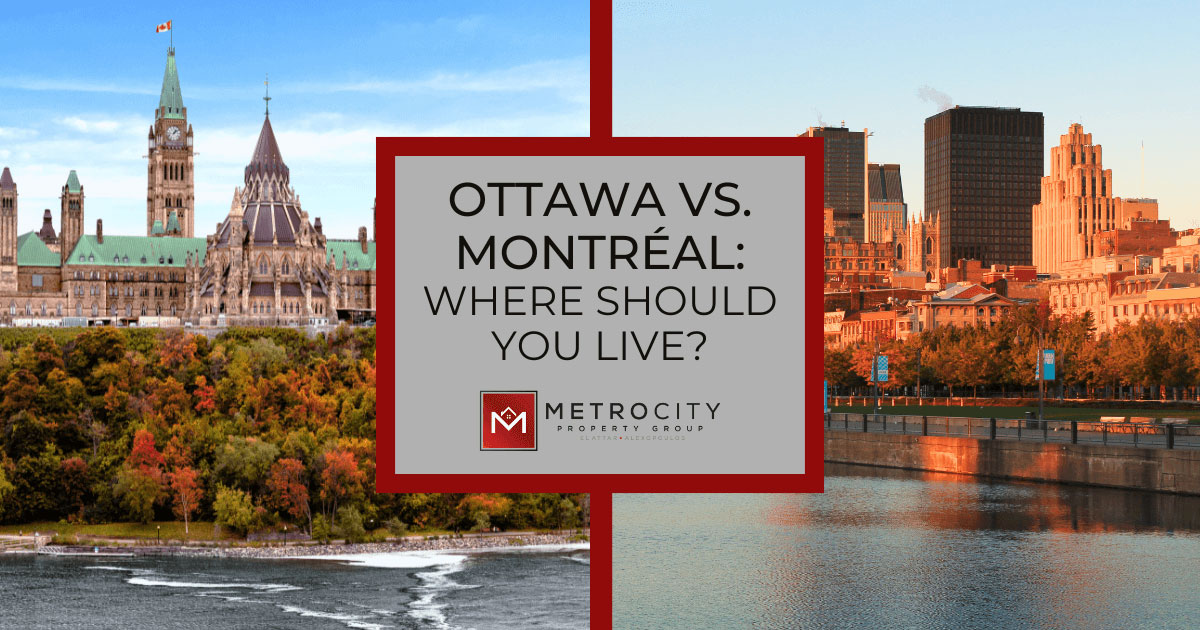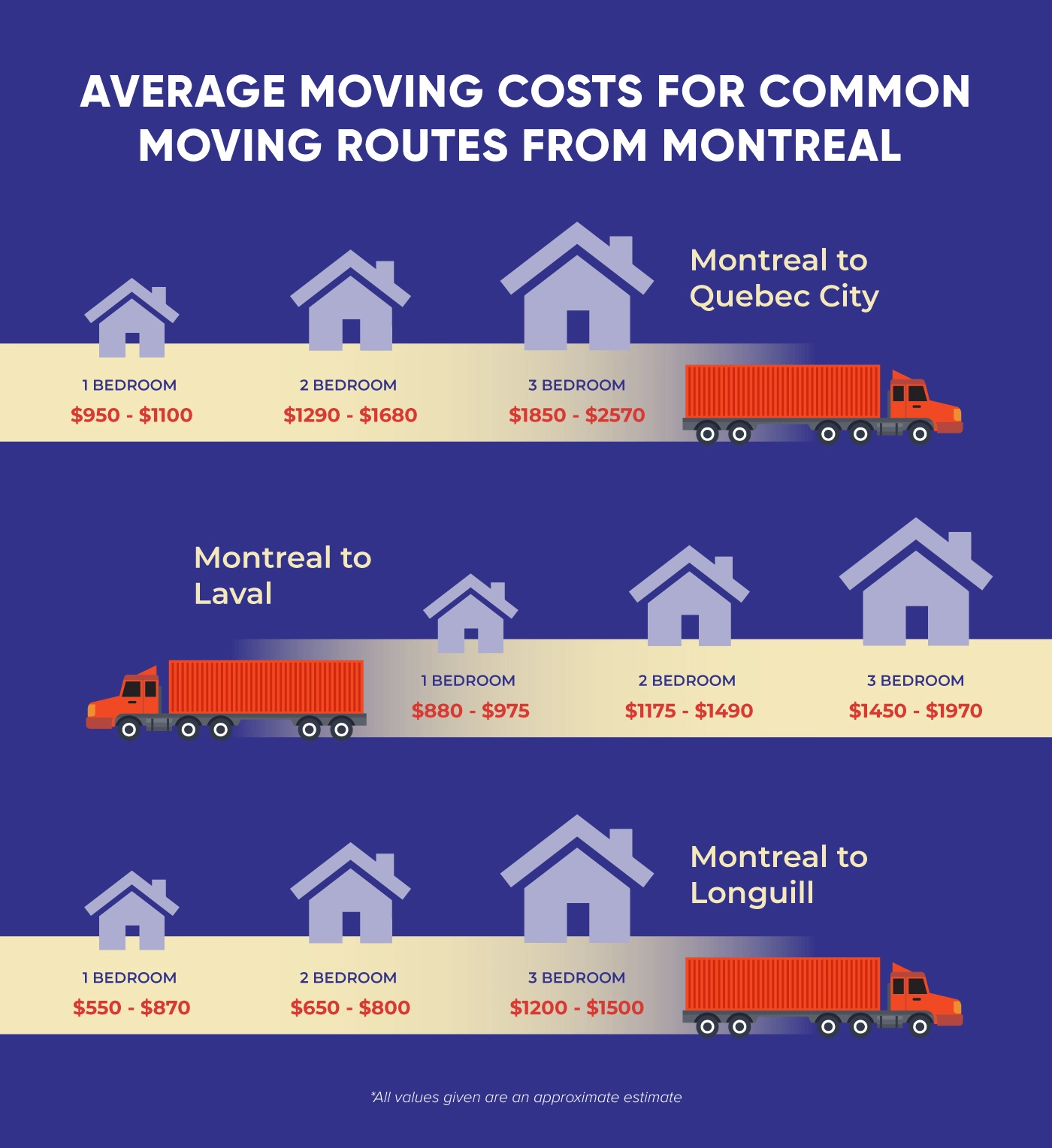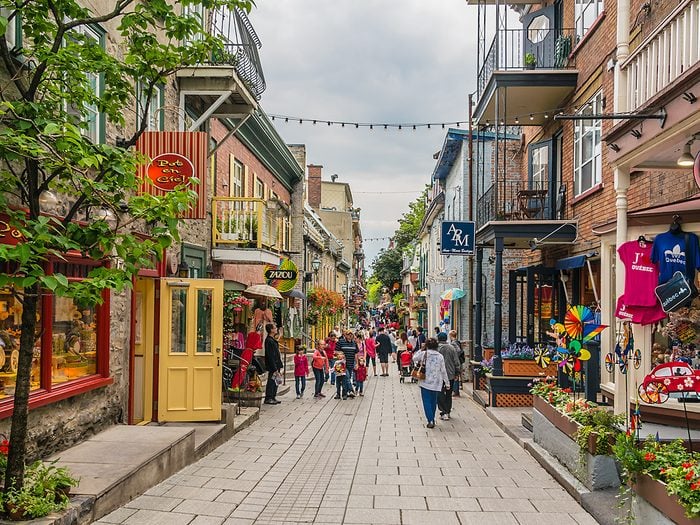Moving From Ottawa To Montreal
Making the move from Ottawa to Montreal can be an exciting yet daunting experience. As two of Canada's most vibrant cities, both Ottawa and Montreal offer a unique blend of cultural attractions, economic opportunities, and quality of life. However, they also have distinct personalities, lifestyles, and living costs. If you're considering relocating from Ottawa to Montreal, it's essential to understand the differences between these two cities to ensure a smooth transition. From navigating housing markets to finding the best neighborhoods, this article will guide you through the key factors to consider when making the move.

- Embracing the Cultural Shift: Moving from Ottawa to Montreal
- Is it better to live in Ottawa or Montreal?
- How much does it cost to move from Montreal to Ottawa?
- Is it worth to move to Montreal?
- Which is colder, Montreal or Ottawa?
- FAQ
- What are the main differences between Ottawa and Montreal in terms of cost of living?
- How do I navigate the language difference between Ottawa and Montreal?
- What are the transportation options like in Montreal compared to Ottawa?
- How do I find a place to live in Montreal, and what are the most popular neighborhoods?
Embracing the Cultural Shift: Moving from Ottawa to Montreal
Moving from Ottawa to Montreal can be an exciting adventure, but it's essential to be prepared for the cultural and lifestyle changes that come with it. While both cities are located in the same province, they have distinct personalities and ways of life. Montreal, being the second-largest French-speaking city in the world, has a unique cultural identity that is deeply rooted in its language, history, and traditions. Ottawa, on the other hand, is a predominantly English-speaking city with a strong federal government presence. When moving from Ottawa to Montreal, you can expect to experience a significant shift in cultural dynamics.
Language and Cultural Immersion
One of the most notable differences between Ottawa and Montreal is the language. Montreal is a predominantly French-speaking city, and you can expect to hear French spoken on the streets, in shops, and in restaurants. While many Montrealers speak English, making an effort to learn some French will go a long way in helping you integrate into the community. Tip: Take advantage of free French language courses offered by the government of Quebec to help you get started.
Housing and Cost of Living
The cost of living in Montreal is generally lower compared to Ottawa. You can expect to find affordable housing options, including apartments and houses, in various neighborhoods. However, be prepared for higher taxes and utility bills. Average Rent Prices: | Neighborhood | Average Rent Price (1-bedroom apartment) | | --- | --- | | Downtown Montreal | $1,300 - $1,800 | | Plateau Mont-Royal | $1,200 - $1,600 | | Rosemont-Petite-Patrie | $1,100 - $1,500 |
Job Market and Industry
Montreal has a thriving economy, with a strong focus on industries such as aerospace, pharmaceuticals, and technology. You can expect to find job opportunities in these fields, as well as in the service industry, which is driven by the city's vibrant tourism sector. Top Industries: Aerospace Pharmaceuticals Technology Tourism Service Industry
Transportation and Commuting
Montreal has a well-developed public transportation system, including buses and metro lines. You can expect to find affordable transportation options, making it easy to get around the city without a car. Public Transportation Options: Metro (subway) Bus BIXI (bike-sharing system)
Food and Nightlife
Montreal is known for its vibrant food scene, which features a mix of French, Quebecois, and international cuisine. You can expect to find a wide range of restaurants, cafes, and bars, particularly in the Plateau Mont-Royal and Downtown areas. Must-Try Foods: Poutine Smoked meat sandwiches Bagels Quebecois sugar pie
Is it better to live in Ottawa or Montreal?

Cost of Living Comparison
When deciding between Ottawa and Montreal, the cost of living is a crucial factor to consider. Ottawa tends to be more expensive than Montreal, especially when it comes to housing. The average rent for a one-bedroom apartment in Ottawa is around $1,800 per month, while in Montreal, it's around $1,400 per month. However, Montreal has higher taxes, which can add up quickly. Here's a breakdown of some typical expenses in both cities:
- Ottawa: Rent (1-bedroom apartment): $1,800/month; Groceries: $800/month; Transportation: $100/month
- Montreal: Rent (1-bedroom apartment): $1,400/month; Groceries: $700/month; Transportation: $80/month
Culture and Lifestyle
Both Ottawa and Montreal offer a unique cultural experience, but they cater to different preferences. Ottawa is known for its politically charged atmosphere, being the nation's capital, and hosts many national events and festivals throughout the year. Montreal, on the other hand, is famous for its French-Canadian culture, vibrant arts scene, and a more European-inspired lifestyle. When it comes to food, Montreal is renowned for its bagels, smoked meat, and poutine, while Ottawa has a more diverse dining scene. Here are some cultural highlights of each city:
- Ottawa: Canada Day celebrations, Ottawa Bluesfest, Winterlude
- Montreal: Osheaga music festival, Just for Laughs comedy festival, Montreal Jazz Festival
Job Market and Education
Ottawa and Montreal have different strengths when it comes to the job market and education. Ottawa is home to many government jobs and a thriving tech industry, with companies like Shopify and BlackBerry having a significant presence. Montreal, on the other hand, has a strong artificial intelligence sector and a growing startup ecosystem. When it comes to education, both cities have top-ranked universities, but Ottawa is home to the University of Ottawa, which is one of the largest bilingual universities in Canada. Here are some key industries and educational institutions in each city:
- Ottawa: Government, tech, healthcare; University of Ottawa, Carleton University
- Montreal: Artificial intelligence, aerospace, manufacturing; McGill University, Université de Montréal
How much does it cost to move from Montreal to Ottawa?

The cost of moving from Montreal to Ottawa depends on several factors, including the distance, weight, and type of items being transported, as well as the services required. Here are some estimated costs:
Moving a small load (less than 2,000 pounds): $500-$1,500
Moving a medium-sized load (2,000-4,000 pounds): $1,500-$3,500
Moving a large load (4,000-6,000 pounds): $3,500-$6,000
Moving a very large load (more than 6,000 pounds): $6,000-$10,000 or more
Factors Affecting Moving Costs
Several factors can affect the cost of moving from Montreal to Ottawa. Here are some of the most significant ones:
- Distance: The farther you need to move, the more you'll pay. Ottawa is approximately 200 km from Montreal, which is a relatively short distance.
- Weight and volume of items: The more items you have, the heavier and bulkier the load will be, and the more you'll pay.
- Type of items: Moving fragile or specialty items, such as pianos or antiques, may require special handling and equipment, increasing the cost.
Additional Services and Costs
Depending on your specific needs, you may require additional services that can increase the cost of your move. Here are some examples:
- Packing services: If you don't have the time or expertise to pack your items, you can hire professional packers. This can add $500-$2,000 to your total cost.
- Storage services: If you need to store your items temporarily during the move, you'll need to pay for storage fees, which can range from $100-$500 per month.
- Long-carry fees: If your new home is located far from the main road or has limited access, you may need to pay extra for long-carry fees, which can range from $100-$500.
Tips for Reducing Moving Costs
Here are some tips to help you reduce the cost of your move:
- Downsize your belongings: The less you have to move, the less you'll pay. Consider donating, selling, or throwing away items you no longer need.
- Choose the right moving date: Moving during the off-season (winter) or during the week (instead of weekends) can result in lower costs.
- Get quotes from multiple movers: Research and compare prices from different moving companies to find the best deal.
Is it worth to move to Montreal?

Montreal, the second-largest French-speaking city in the world, is a culturally rich and vibrant metropolis with a unique blend of European and North American influences. Located in the Province of Quebec, Canada, Montreal offers a diverse range of experiences, from its historic architecture and cobblestone streets to its modern amenities and eclectic neighborhoods.
Quality of Life
Montreal is known for its high quality of life, with a strong focus on work-life balance. The city offers a range of benefits, including:
- Affordable cost of living: Compared to other major cities in Canada, Montreal has a relatively low cost of living, making it an attractive option for those looking to relocate.
- Access to nature: Montreal is surrounded by beautiful parks and nature reserves, providing ample opportunities for outdoor activities and relaxation.
- Cultural events and festivals: Montreal hosts a wide range of cultural events and festivals throughout the year, including the Just for Laughs comedy festival and the Montreal Jazz Festival.
Job Market and Economy
Montreal has a thriving economy, with a strong focus on industries such as technology, aerospace, and healthcare. The city is home to a number of major companies, including:
- Artificial intelligence and tech startups: Montreal is a hub for AI research and development, with companies like Google and Microsoft having a presence in the city.
- Aerospace industry: Montreal is home to a number of major aerospace companies, including Bombardier and Pratt & Whitney Canada.
- Healthcare and biotechnology: The city is a center for healthcare and biotechnology research, with institutions like the McGill University Health Centre and the Montreal Neurological Institute.
Language and Culture
While French is the official language of Quebec, Montreal is a predominantly bilingual city, with many residents speaking both French and English. The city's unique cultural identity is shaped by its:
- French Canadian heritage: Montreal's history and culture are deeply rooted in French Canadian traditions, with many historic buildings and landmarks throughout the city.
- Multicultural community: Montreal is a melting pot of cultures, with a thriving immigrant community and a wide range of cultural events and festivals.
- Arts and culture scene: The city is home to a number of world-class museums, galleries, and performance venues, including the Montreal Museum of Fine Arts and the Place des Arts.
Which is colder, Montreal or Ottawa?

Both Montreal and Ottawa are known for their cold winters, but which one is colder? The answer lies in their average temperature and climate data.
Temperature Comparison
When comparing the average temperatures of Montreal and Ottawa, it's clear that Ottawa is the colder city. According to Environment and Climate Change Canada, Ottawa's average temperature in January, the coldest month, is -10.2°C (13.6°F), while Montreal's average temperature is -9.3°C (15.3°F). This difference may seem small, but it's significant when considering the overall climate.
Cold Snaps and Extreme Weather
Both cities experience cold snaps and extreme weather conditions, but Ottawa is more prone to prolonged periods of cold weather. This is due to its location in the Ottawa Valley, which can trap cold air and create a phenomenon known as the cold bowl effect. Montreal, on the other hand, is situated near the St. Lawrence River, which can moderate its temperature. Here are some key differences in extreme weather events:
- Ottawa averages 18 days per year with temperatures below -20°C (-4°F), while Montreal averages 12 days.
- Ottawa receives more snowfall than Montreal, with an average of 235 cm (92.5 in) compared to Montreal's 209 cm (82.3 in).
- Montreal experiences more freezing rain events than Ottawa, which can make its winters feel colder.
Winter Climate Indices
The Winter Severity Index (WSI) and the Cold Surge Index (CSI) are two metrics used to quantify the severity of winter weather. According to these indices, Ottawa consistently scores higher than Montreal, indicating a colder climate. Here are the average WSI and CSI values for each city:
- Ottawa's average WSI is 44.6, while Montreal's is 39.3.
- Ottawa's average CSI is 12.4, while Montreal's is 10.5.
- These indices take into account factors like temperature, snowfall, and wind chill, providing a comprehensive view of winter severity.
FAQ
What are the main differences between Ottawa and Montreal in terms of cost of living?
When considering a move from Ottawa to Montreal, one of the key factors to take into account is the cost of living. While both cities are located in the province of Quebec, they have distinct economic profiles that can impact your budget and lifestyle. Montreal is generally considered to be a more affordable city than Ottawa, with lower rental prices and housing costs. However, this difference is compensated by a slightly higher tax rate in Montreal. Additionally, Montreal has a more vibrant cultural scene, which may lead to a higher entertainment budget. On the other hand, Ottawa has a stronger job market, particularly in the tech industry, which can result in higher salaries.
One of the most significant differences between Ottawa and Montreal is the language spoken by the majority of the population. While Ottawa is predominantly English-speaking, Montreal is a French-speaking city. If you're not fluent in French, you may need to make an effort to learn the language or find English-speaking communities. However, many Montrealers are bilingual, and you can still find English-speaking services and businesses. Additionally, the city offers many language resources and cultural programs to help you integrate into the community.
What are the transportation options like in Montreal compared to Ottawa?
When moving from Ottawa to Montreal, you'll notice some differences in transportation options. Montreal has a more developed public transportation system, including a comprehensive metro network and an extensive bus system. Additionally, the city has a bike-sharing system and is investing in electric bike infrastructure. While Ottawa also has a public transportation system, it is not as extensive as Montreal's. However, Ottawa has more parking options and is more car-friendly. Ultimately, the choice between the two cities will depend on your commuting needs and personal preferences.
How do I find a place to live in Montreal, and what are the most popular neighborhoods?
Finding a place to live in Montreal can be a challenge, especially for those who are new to the city. The housing market in Montreal is highly competitive, and rental prices can be steep. To increase your chances of finding a dream apartment, start by researching the most popular neighborhoods, such as Le Plateau-Mont-Royal, Rosemont-Petite-Patrie, and Verdun. These neighborhoods offer a mix of historic buildings, trendy cafes, and vibrant cultural scenes. You can also consider working with a real estate agent or using online rental platforms to find your ideal apartment or house. Be prepared to act quickly, as the best properties tend to get snapped up quickly.
